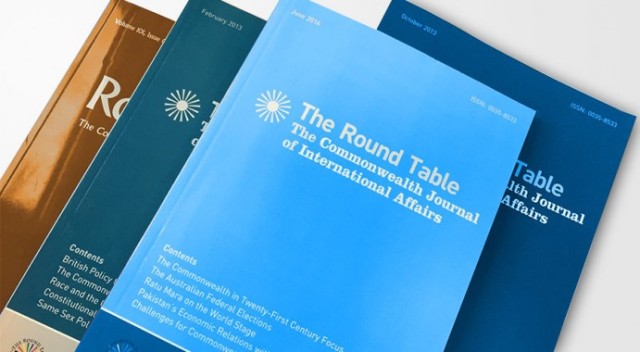
[This is an excerpt from a 1978 article in The Round Table Journal reflecting on the then international debate about human rights as part of the wider process of normative change in the world. It includes a look at the role of the Jimmy Carter administration. Opinions expressed in articles do not reflect the views of the editorial board. Following the 29 December death of Jimmy Carter, you can find links to other journal articles at the end of this excerpt.]
The Third World: Towards Liberation
But while there has indeed been greater liberation in both the Communist and the Western worlds, the emphasis in the Third World has been on liberation rather than liberalisation. Domestically, Third World states have on the whole been getting more repressive, but in foreign policy the struggle is for the collective rights of previously underprivileged societies and races. This has led to related areas of debate. Jimmy Carter has questioned the wisdom of taxing the poor of developed countries for the benefit of the rich in developing societies. The Carter Administration has also used American aid as an instrument for promoting greater respect for human rights, especially in the Third World. Is this Carter strategy a new form of imperialism? The Third World knows how easily the hegemonic interests of the mighty can be dressed in a moral garb. That is what old concepts like Pax Britannica and ” White Man’s burden” were all about. Pax Britannica asserted the “right” of Britons to “pacify warring natives”. Under this banner, imperialism thus moralised about the value of peace. Under the banner of the ” White Man’s burden “, on the other hand, imperialism moralised about the duty to civilise those who were ” half-devils, half-children “.
Take up the White Man’s burden –
Send forth the best ye breed –
Go bind your sons to exile
To serve your captive’s need;
Take up the White Man’s burden –
The savage wars of peace –
Fill full the mouth of Famine and bid the sickness cease;
Take up the White Man’s burden –
No tawdry rule of Kings,
But toil of serf and sweeper –
The tale of common things.
The ports ye shall not enter.
The roads ye shall not tread,
Go make them with your living,
And mark them with your dead.
[Rudyard Kipling, ” The White Man’s Burden “, The Times (London), February 4,1899.]
Rudyard Kipling wrote the poem to encourage Americans in their colonisation of the Philippines. Is Carter’s clarion call for human rights in the same tradition of moralistic imperialism?
There is indeed an element of imperialistic presumption in some of the moral rhetoric of the Carter Administration. The rhetoric does at times smack of the old mission of “civilising the natives”. And yet there is indeed a fundamental difference between Pax Britannica and the White Man’s burden, on the one hand, and the Carter strategy of moral pressure, on the other. The older form of imperialism threatened to move into the weaker countries in order to make them more civilised. The Carter strategy threatens an American pull out if human rights continue to be violated in a given country. The old imperialism said to the natives: ” Behave yourselves—or we shall intervene!” The Carter Administration says to native rulers: “Behave yourselves—or we shall withdraw!” That is the logic of making American aid to, say, Ethiopia partly dependent on Ethiopian good behaviour.
The old imperialism of gunboat diplomacy was based on the efficacy of the stick. The new strategy of human rights is based on the tempting potentialities of the carrot. The Carter version of moralistic hegemony is a considerable improvement upon the old crudities of Pax Britannica. And yet there is a residual misunderstanding in Carter’s concept of aid. To withdraw aid because a Third World Government misbehaves implies that the aid is a gesture of generosity in any case. It is to suggest that the Third World is not entitled to Western aid—but may receive it only as charity based on good conduct. If foreign aid is the carrot in a stick-and-carrot diplomacy, then the Third World is merely eligible for aid and not entitled to it. But is this a correct interpretation? Or should foreign aid be seen as part of a total package of global rights and obligations within which the central moral principle is not charity but justice! Under such a principle of justice the rich countries of the world may not have a right to withhold development aid as a punitive measure. But the issues are complicated and pose a variety of ethical questions.
Ali A. Mazrui was Professor of Political Science, University of Michigan.
Related articles from The Round Table Journal:
Human rights and US foreign policy



